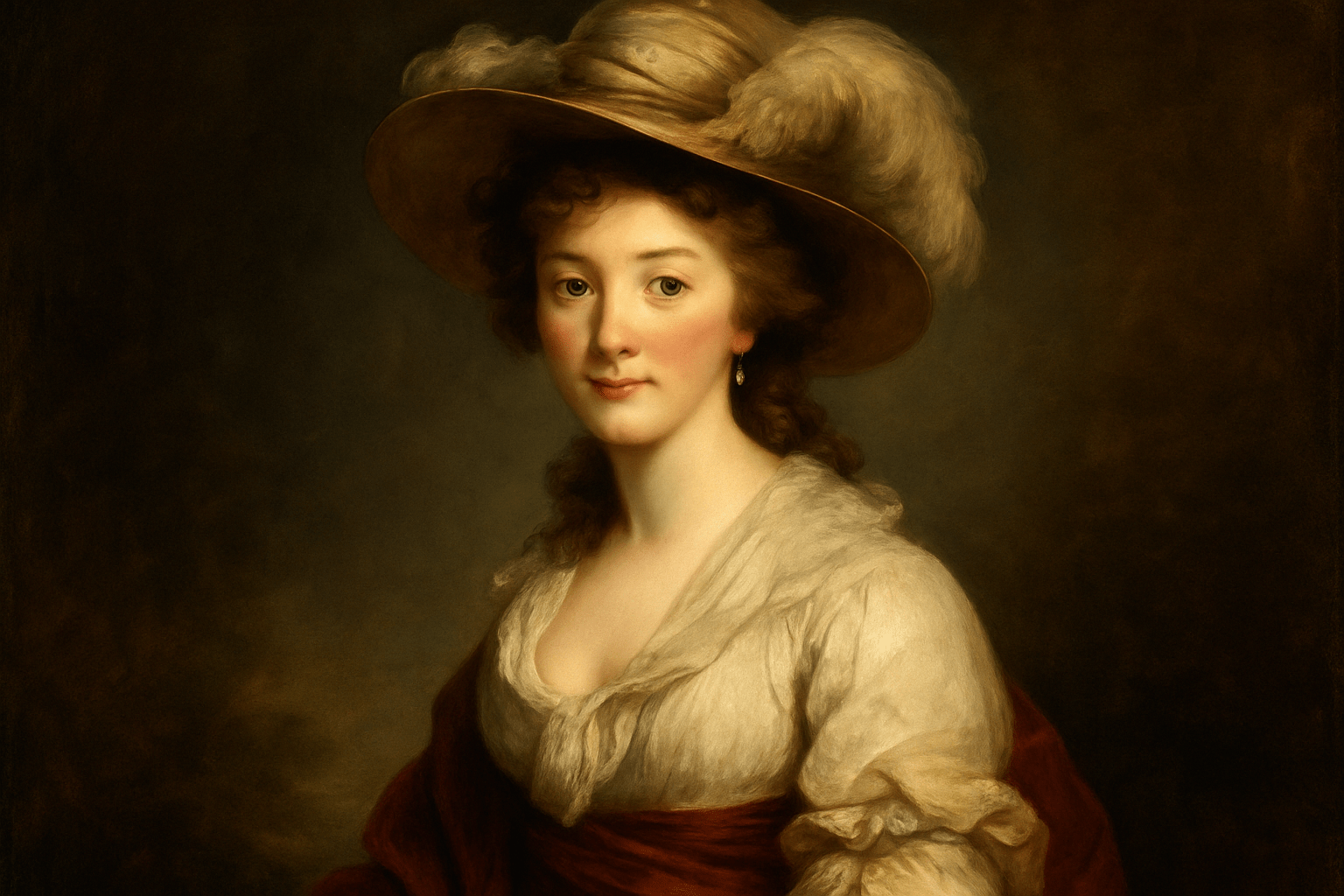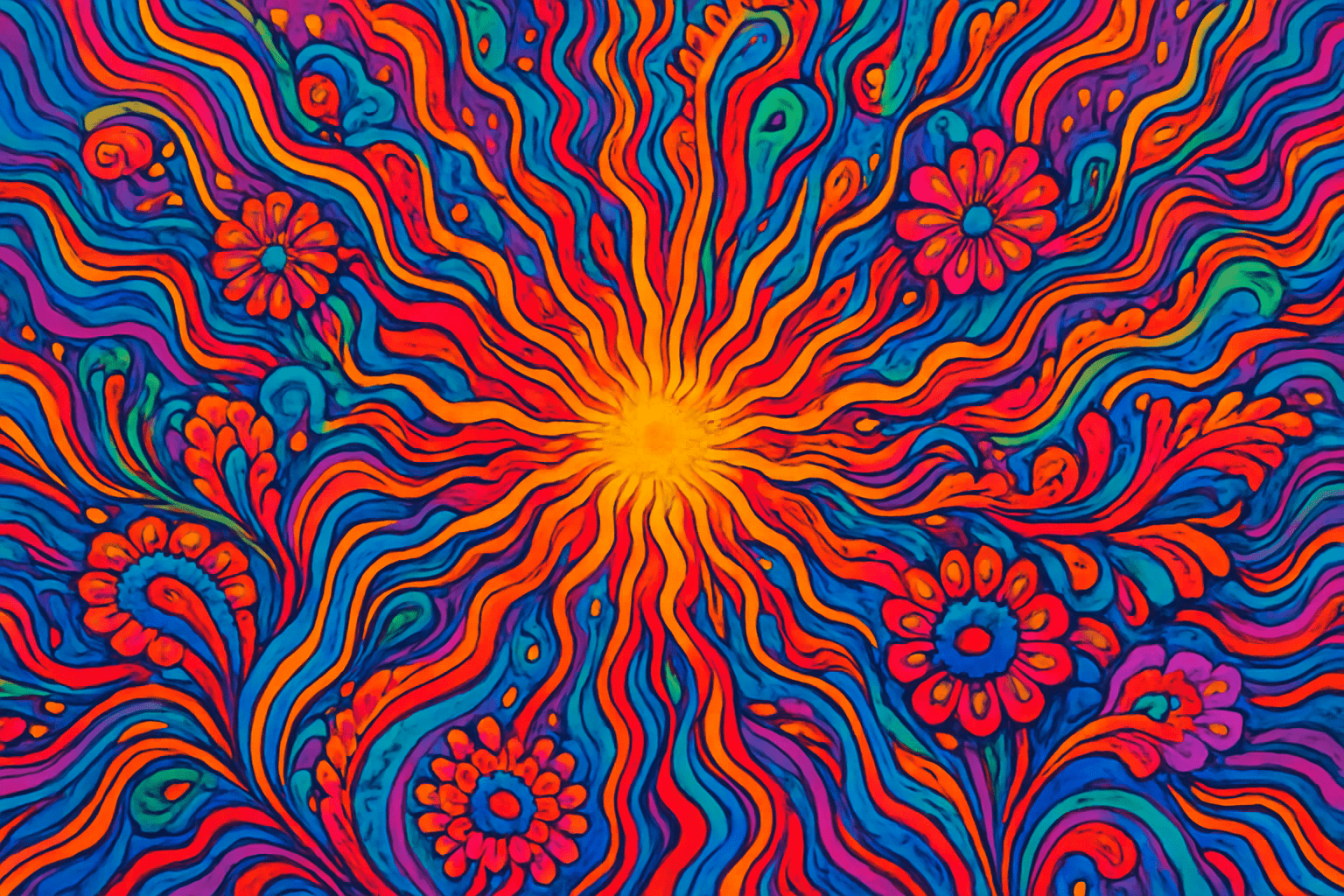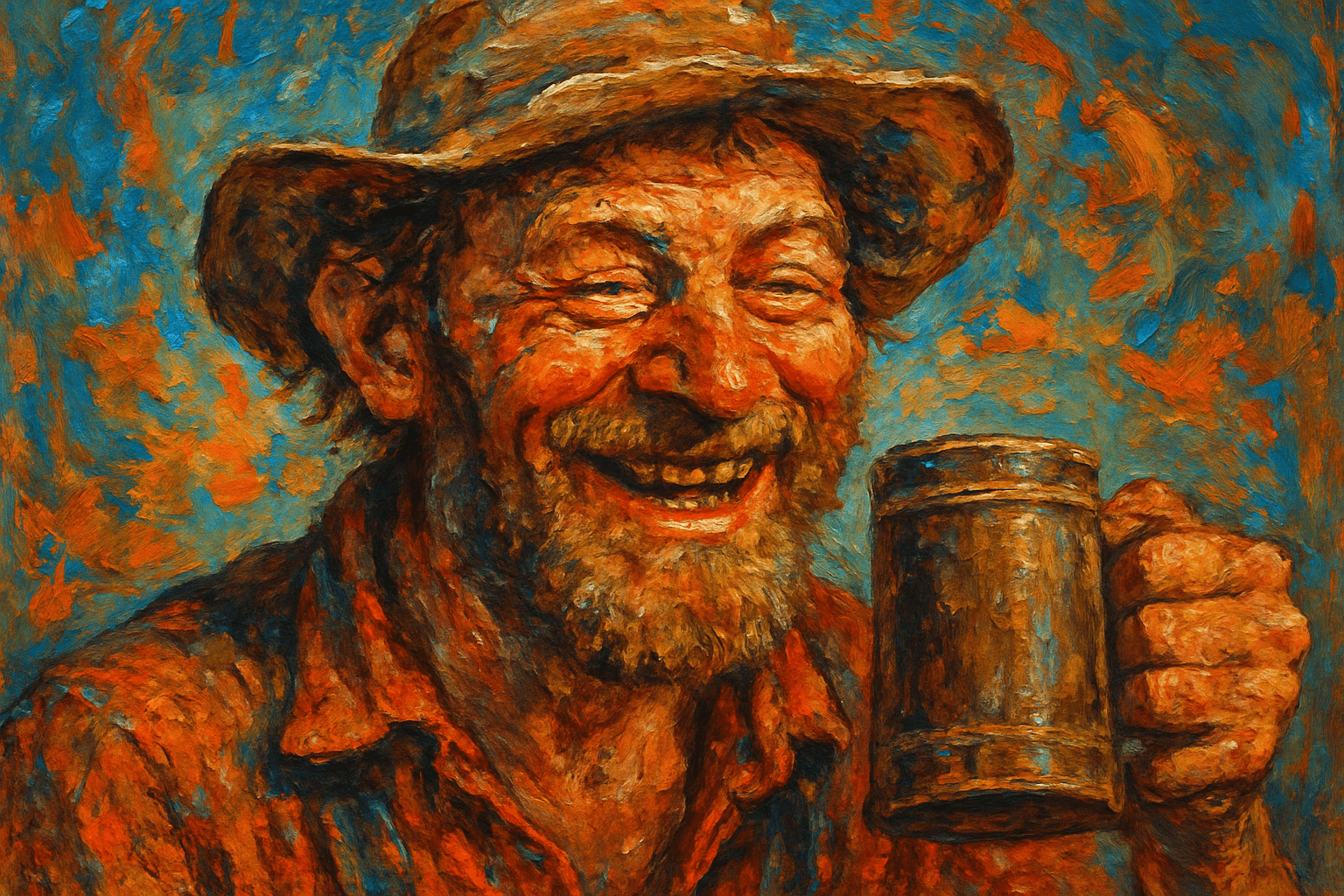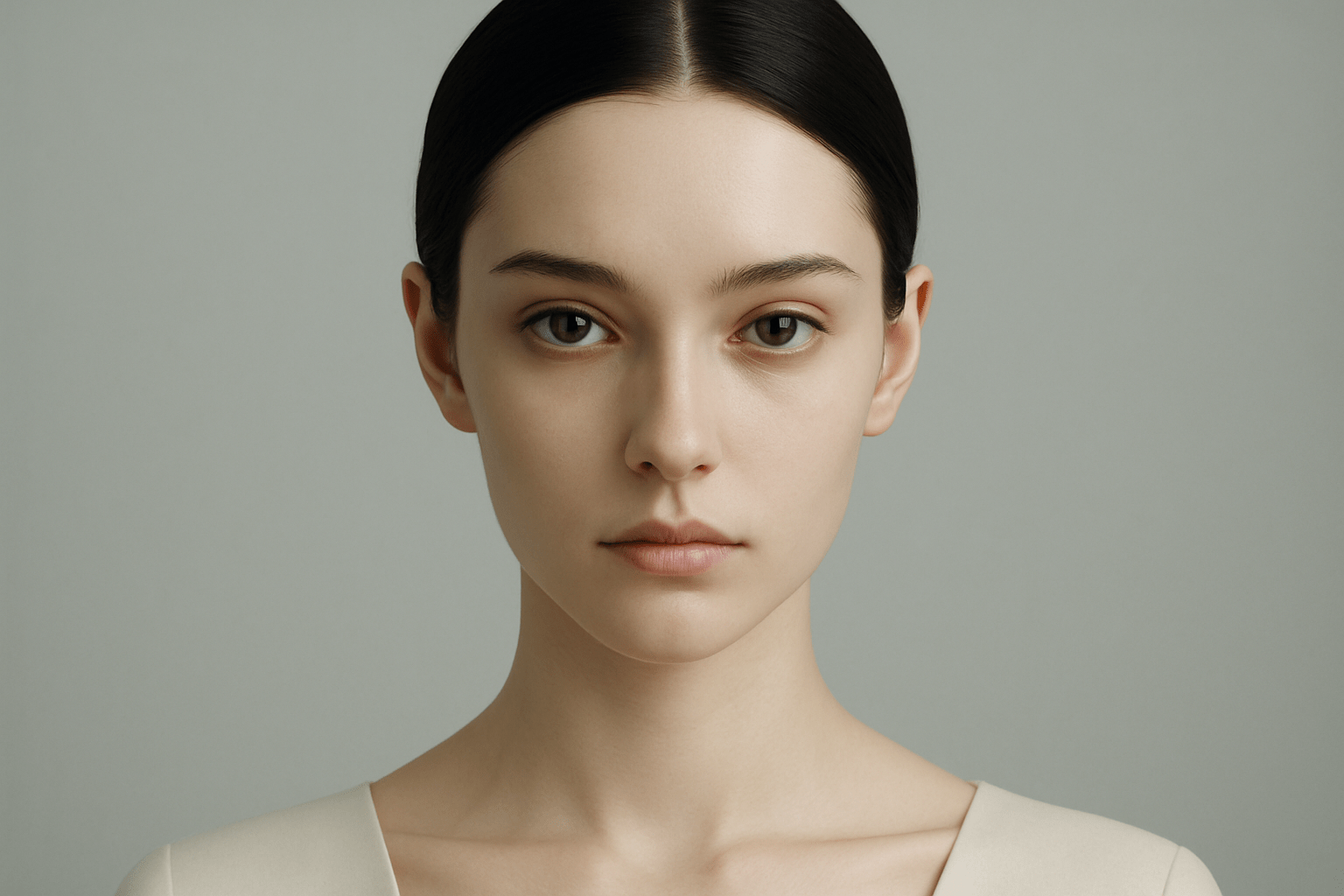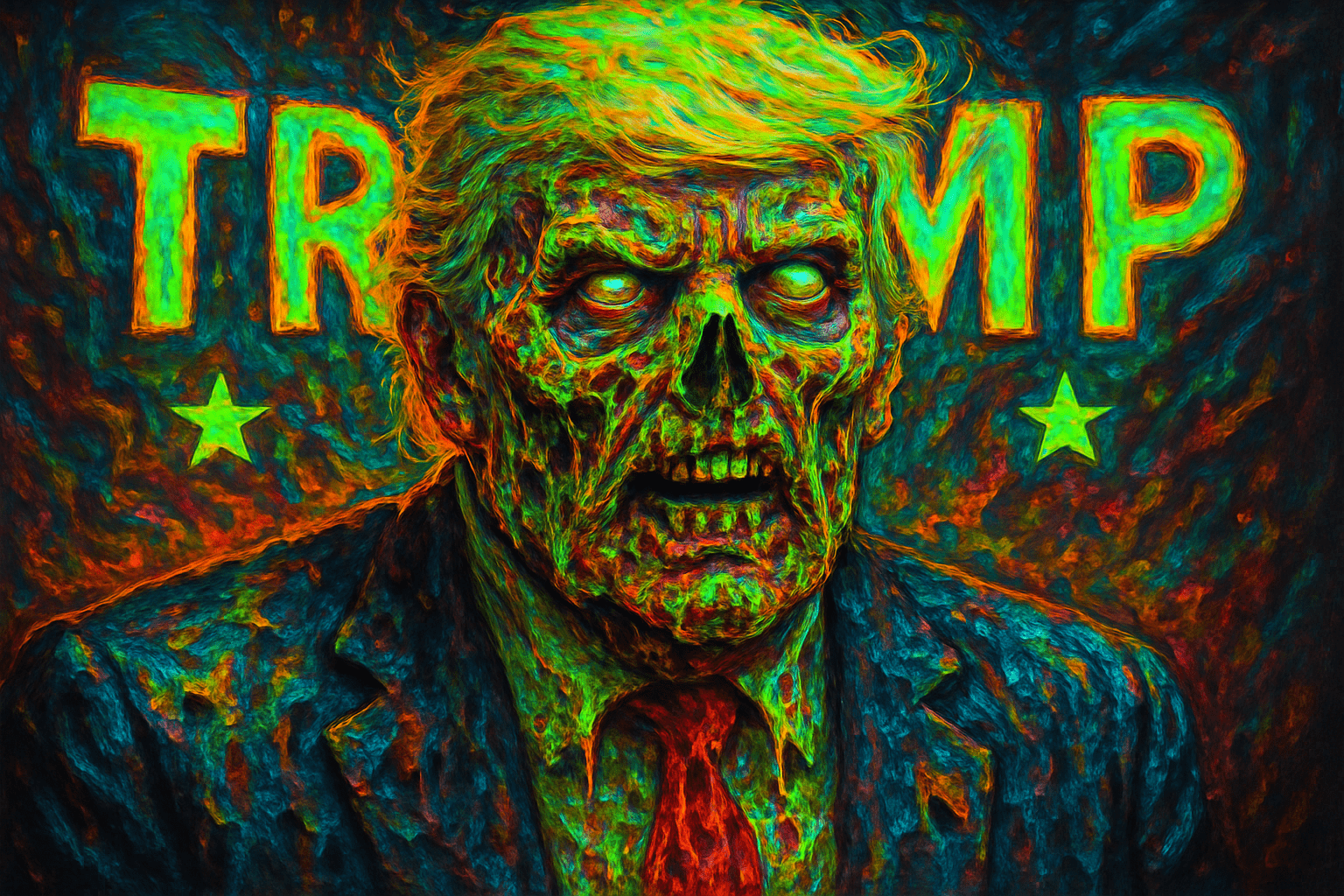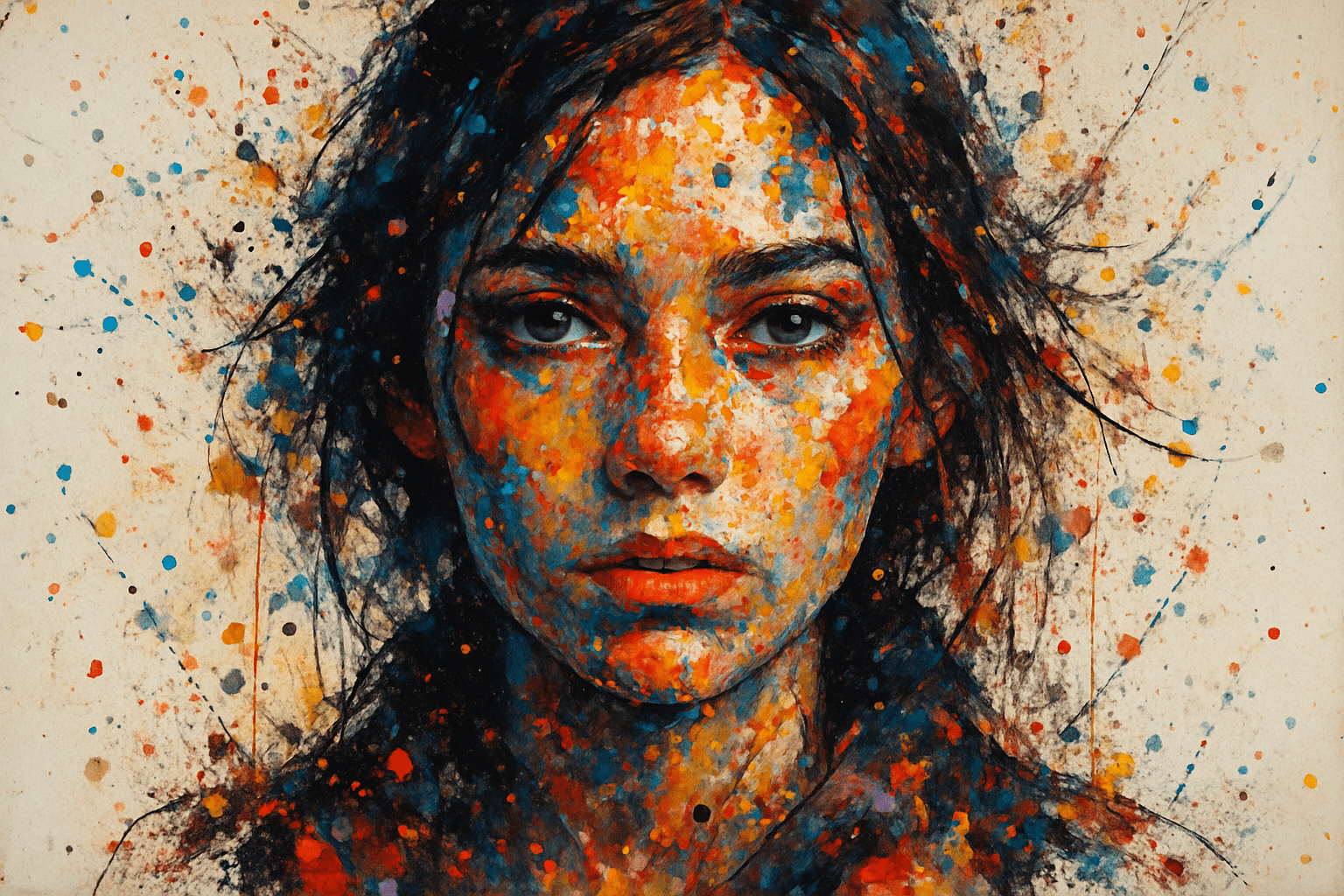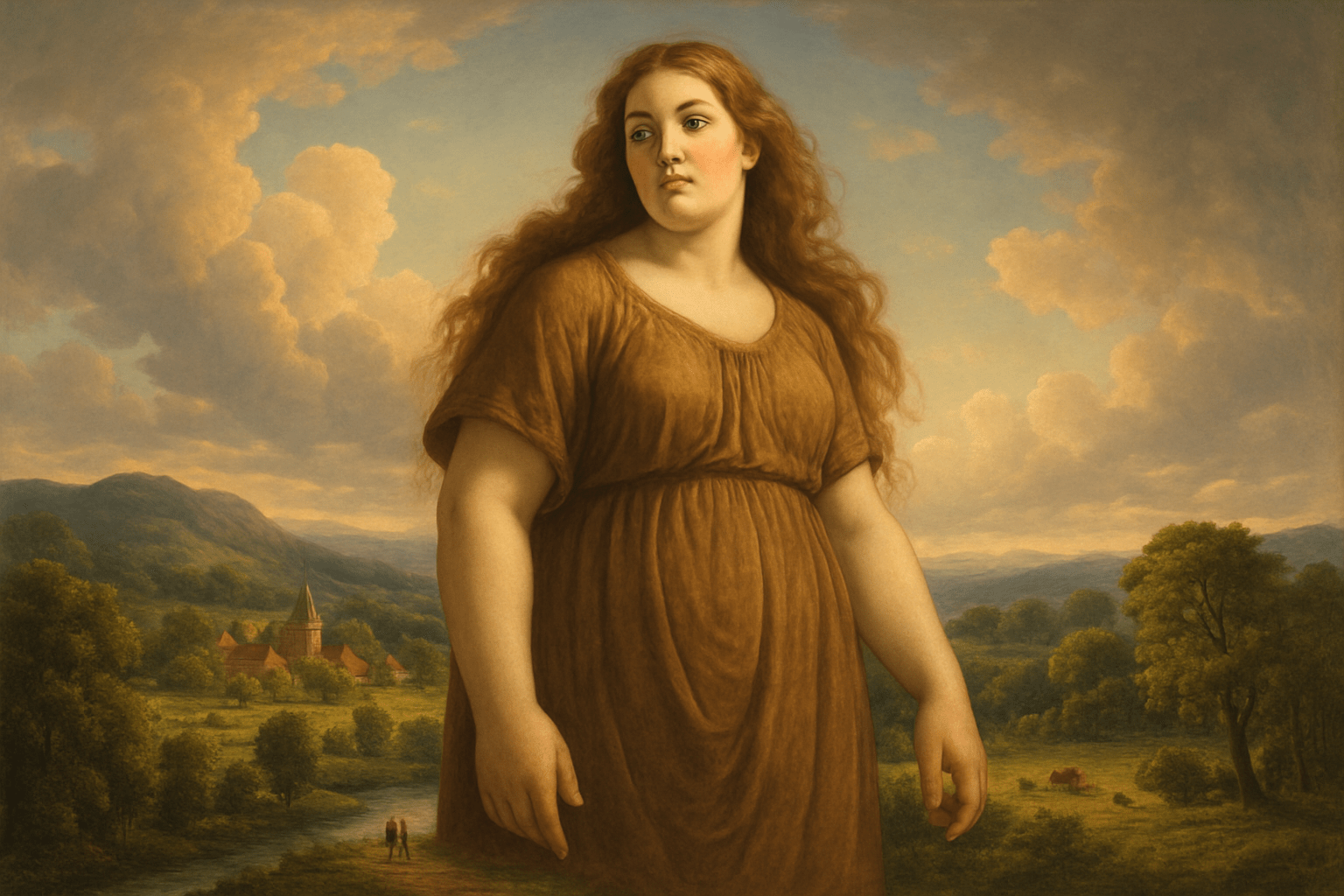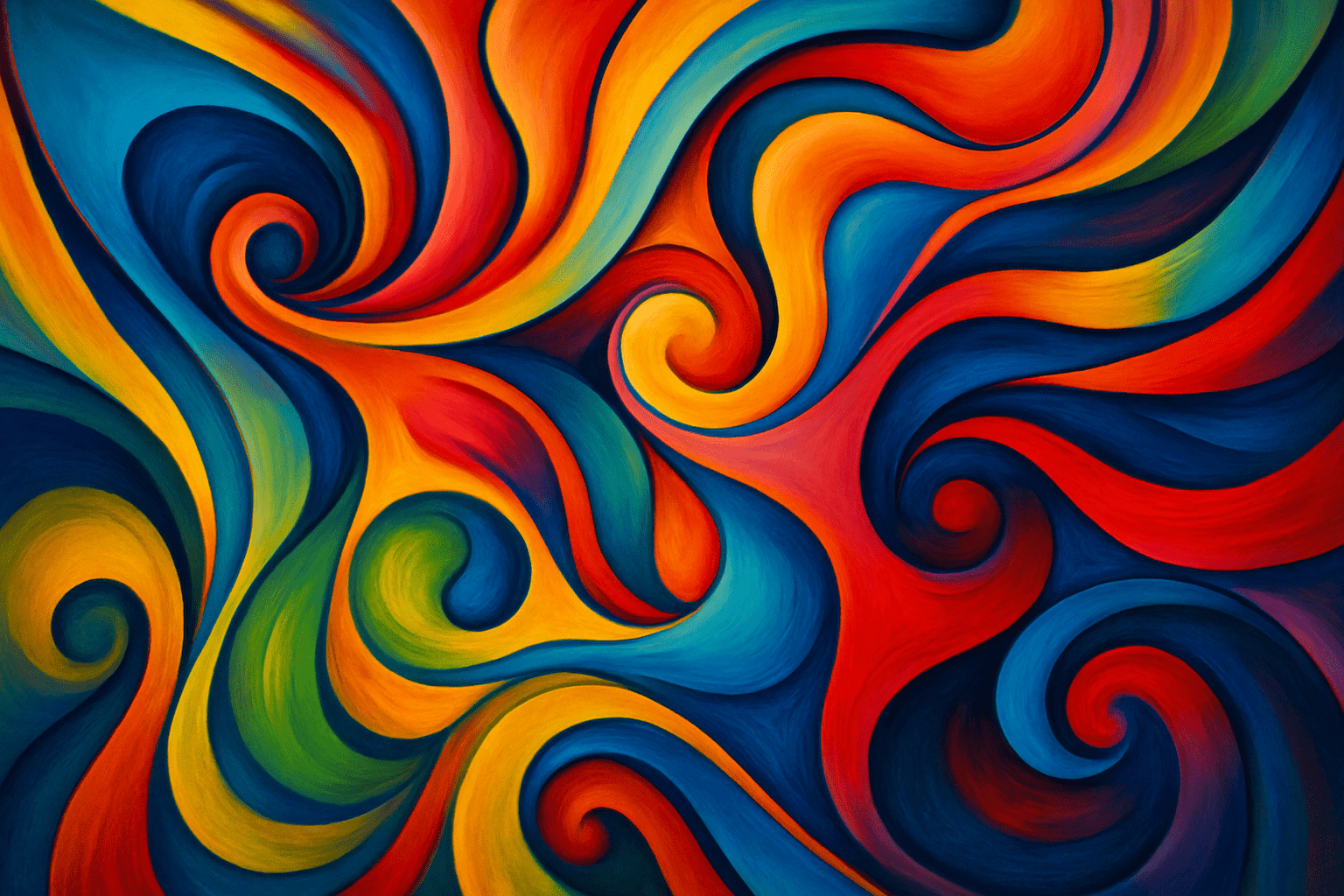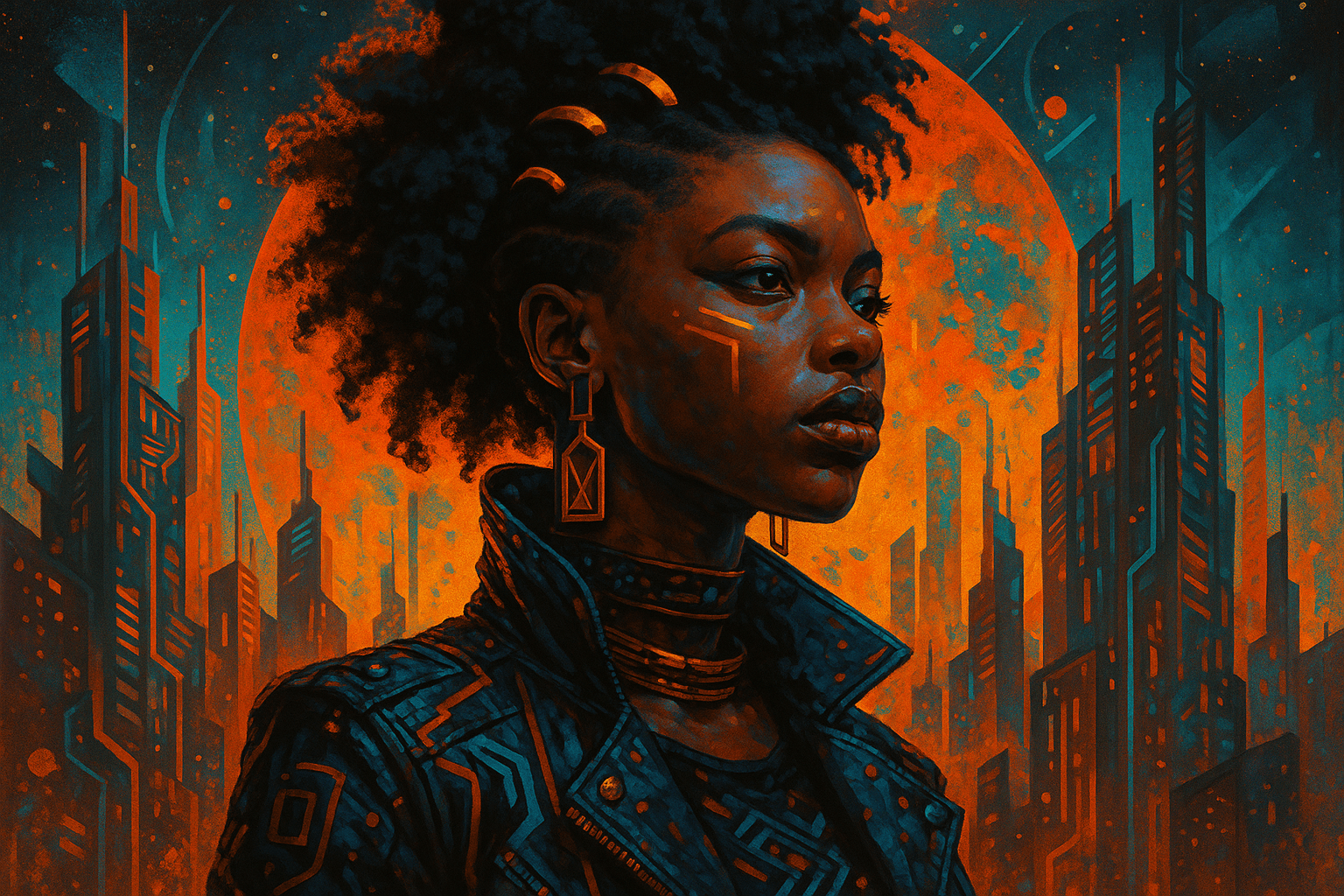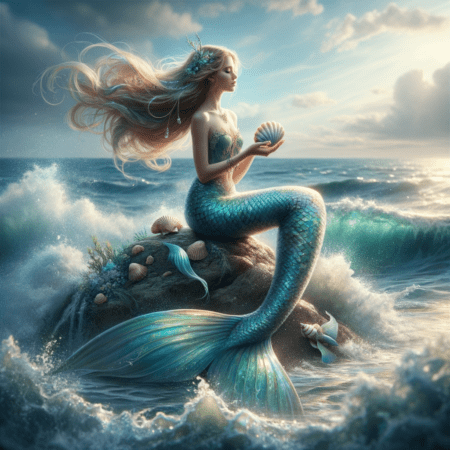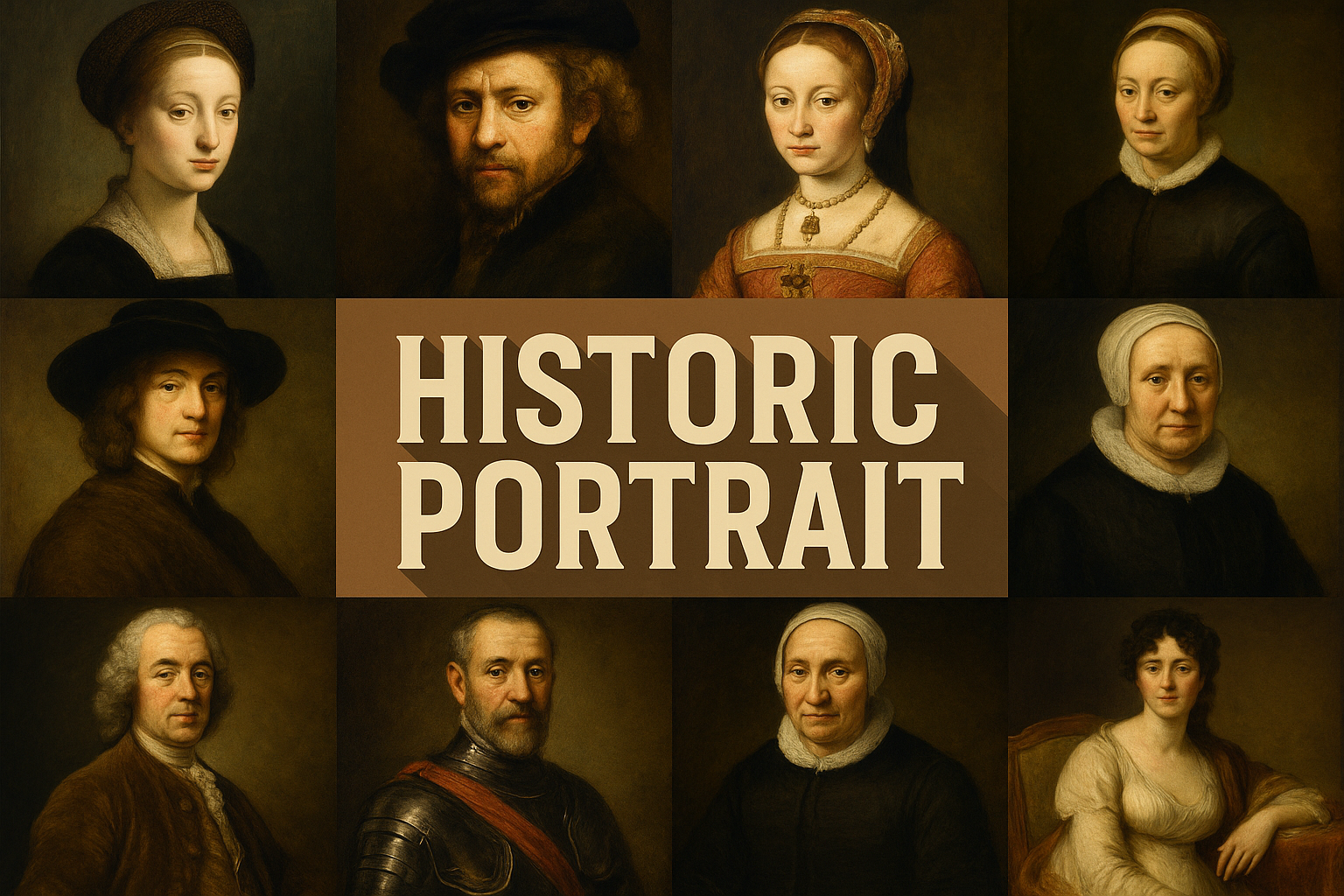
Historic portrait
The art style of historic portrait is characterized by its realistic and detailed depiction of the subject. The artist often uses a light and dark color palette to create a sense of depth and dimensionality. The background is usually kept simple, so as not to distract from the main subject.
AOI thinking about Historic portrait [+_~]-/
Overview and Quickfacts
Historic portraiture is a genre of art that depicts people from history. The style is characterized by its realism and the use of light and shadow to create a sense of depth. Historic portraits often include elements of the sitter’s environment, such as furniture or architecture, to provide context.
Can understand it also, as:
Famous portrait, well-known portrait, important portrait, significant portrait, renowned portrait, celebrated portrait, notorious portrait, groundbreaking portrait, innovative portrait.
Categorize it as:
Impressionism, Modernism
.: Dreaming :.
holds a HAIKU for the art style
:. Thought is power .:
Detailed Description
Historic portrait paintings are some of the most beautiful and intriguing pieces of art in existence. These paintings provide a window into the past, allowing us to see how people lived, dressed, and interacted with their surroundings centuries ago. Some of the most famous historic portrait painters include Leonardo da Vinci, Rembrandt van Rijn, and Johannes Vermeer. These artists were masters of their craft, able to capture the essence of their subjects in a way that feels both real and timeless. One of the most iconic historic portraits is da Vinci’s “Mona Lisa.” This painting is famous for its enigmatic subject, who stares out at the viewer with a mysterious smile. The “Mona Lisa” is a perfect example of da Vinci’s skill as a portrait painter; he was able to capture not only his subject’s physical appearance, but also her inner thoughts and emotions. Another famous historic portrait is Rembrandt’s “The Night Watch.” This painting depicts a group of Dutch soldiers in a night-time scene. Rembrandt’s use of light and shadow creates a sense of drama and tension, making “The Night Watch” one of the most visually arresting portraits ever painted. Johannes Vermeer is another renowned historic portrait painter. His work is characterized by its use of light and color, which he used to create a sense of atmosphere and mood in his paintings. One of Vermeer’s most famous portraits is “Girl with a Pearl Earring.” This painting depicts a young girl wearing a pearl earring, with a light shining on her face from an unseen source. The light creates a sense of mystery and intrigue, making “Girl with a Pearl Earring” a truly captivating portrait. These are just a few of the many famous historic portrait painters and paintings. These artists and their work provide a fascinating glimpse into the past, and their paintings continue to inspire and delight viewers today.
.. beep, beep, beep ..
<START OF TRANSMISSION>
1. A portrait is a painting, photograph, sculpture, or other artistic representation of a person, in which the face and its expression is predominant. 2. The intent of a portrait is to capture the likeness, personality, and even the mood of the subject. 3. Portraits can be of anyone, from a close friend or family member, to a public figure or celebrity. 4. A well-done portrait is often said to capture the "soul" of the subject. 5. Portraits are often commissioned by individuals or organizations, as a way to commemorate someone important. 6. Portraits can be created using a variety of mediums, including painting, drawing, sculpture, photography, and even digital art. 7. The word "portrait" comes from the Latin word "portraere," which means "to carry or to wear." 8. The first portraits were likely painted on cave walls by early humans, as a way to record the appearance of their fellow tribespeople. 9. Some of the most famous portraits in history were painted by the Old Masters, such as Leonardo da Vinci, Rembrandt, and Vincent van Gogh. 10. In the past, only wealthy people could afford to commission portraits, as the process was time-consuming and expensive. 11. Today, anyone can have a portrait made, thanks to advances in technology and the availability of affordable cameras and printers. 12. Portraits can be hung on walls, displayed on shelves, or even carried around in a wallet or purse. 13. Many people choose to have their portraits taken professionally, in order to ensure that the finished product is of high quality. 14. Professional portrait photographers often use special lighting techniques and props to create the perfect image. 15. Portraits can be taken in black and white, or in color. 16. They can be formal or informal, posed or candid. 17. Portraits can be serious or lighthearted, depending on the subject's personality and the artist's vision. 18. A portrait can be a cherished keepsake, or a work of art to be enjoyed by all. 19. Portraits can be created from life, or from photographs. 20. With the advent of digital technology, it is now possible to create a portrait entirely from scratch, using nothing but computer software.
<EOF>
.. robbel bob
Visual Examples from our image gallery
Coming soon, we are so slow .. might never come
Artists, Paintings, and more
(be aware, can be highly speculative)
Artists (be aware, speculation possible):
1. Albrecht DÃÂürer (1471-1528) 2. Jan van Eyck (1390-1441) 3. Leonardo da Vinci (1452-1519) 4. Michelangelo (1475-1564) 5. Raphael (1483-1520) 6. Rembrandt (1606-1669) 7. Peter Paul Rubens (1577-1640) 8. Diego VelÃÂázquez (1599-1660) 9. Antoine Watteau (1684-1721) 10. Joshua Reynolds (1723-1792) 11. John Singleton Copley (1738-1815) 12. Gilbert Stuart (1755-1828) 13. Thomas Gainsborough (1727-1788) 14. Francisco Goya (1746-1828) 15. Jean-Auguste-Dominique Ingres (1780-1867) 16. EugÃÂène Delacroix (1798-1863) 17. HonorÃÂé Daumier (1808-1879) 18. Edouard Manet (1832-1883) 19. Claude Monet (1840-1926) 20. Pierre-Auguste Renoir (1841-1919) 21. Paul CÃÂézanne (1839-1906) 22. Vincent van Gogh (1853-1890) 23. Paul Gauguin (1848-1903) 24. Georges Seurat (1859-1891) 25. Henri de Toulouse-Lautrec (1864-1901) 26. Mary Cassatt (1844-1926) 27. John Singer Sargent (1856-1925) 28. James McNeill Whistler (1834-1903) 29. Winslow Homer (1836-1910) 30. Edward Hopper (1882-1967)
Artworks (be aware, speculation possible)
1. The Mona Lisa ÃÂàLeonardo da Vinci (1519) 2. The Last Supper ÃÂàLeonardo da Vinci (1498) 3. The Birth of Venus ÃÂàSandro Botticelli (1486) 4. The Sistine Chapel Ceiling ÃÂàMichelangelo (1512) 5. The School of Athens ÃÂàRaphael (1510) 6. American Gothic ÃÂàGrant Wood (1930) 7. The Scream ÃÂàEdvard Munch (1895) 8. Guernica ÃÂàPablo Picasso (1937) 9. The Night Watch ÃÂàRembrandt (1642) 10. The Hay Wagon ÃÂàAndrew Wyeth (1938) 11. Nighthawks ÃÂàEdward Hopper (1942) 12. Washington Crossing the Delaware ÃÂàEmanuel Leutze (1851) 13. The Battle of Gettysburg ÃÂàThure de Thulstrup (1883) 14. The Death of General Wolfe ÃÂàBenjamin West (1770) 15. The Death of Nelson ÃÂàHoratio Nelson (1805) 16. The Death of Socrates ÃÂàJacques-Louis David (1787) 17. The Raft of the Medusa ÃÂàTheodore Gericault (1819) 18. The Third of May 1808 ÃÂàFrancisco Goya (1814) 19. The Persistence of Memory ÃÂàSalvador Dali (1931) 20. The Haystack in the Mountains ÃÂàCaspar David Friedrich (1820) 21. Wanderer Above the Sea of Fog ÃÂàCaspar David Friedrich (1818) 22. The Madonna and Child ÃÂàMichelangelo (1497) 23. The Creation of Adam ÃÂàMichelangelo (1512) 24. The Last Judgment ÃÂàMichelangelo (1541) 25. The Sistine Chapel Frescoes ÃÂàMichelangelo (1512-1541) 26. The ceiling of the Sistine Chapel ÃÂàMichelangelo (1512) 27. The Transfiguration ÃÂàRaphael (1520) 28. The Marriage of the Virgin ÃÂàRaphael (1504) 29. The Parnassus ÃÂàRaphael (1511) 30. LaocoÃÂön and His Sons ÃÂàEl Greco (1562-1566)
Epoch
The art style Historic portrait emerged during the Renaissance period in Europe.
AI ART RESSOURCES (AKA, well Tools)
Helping tools -> predefined search links on other pages:
